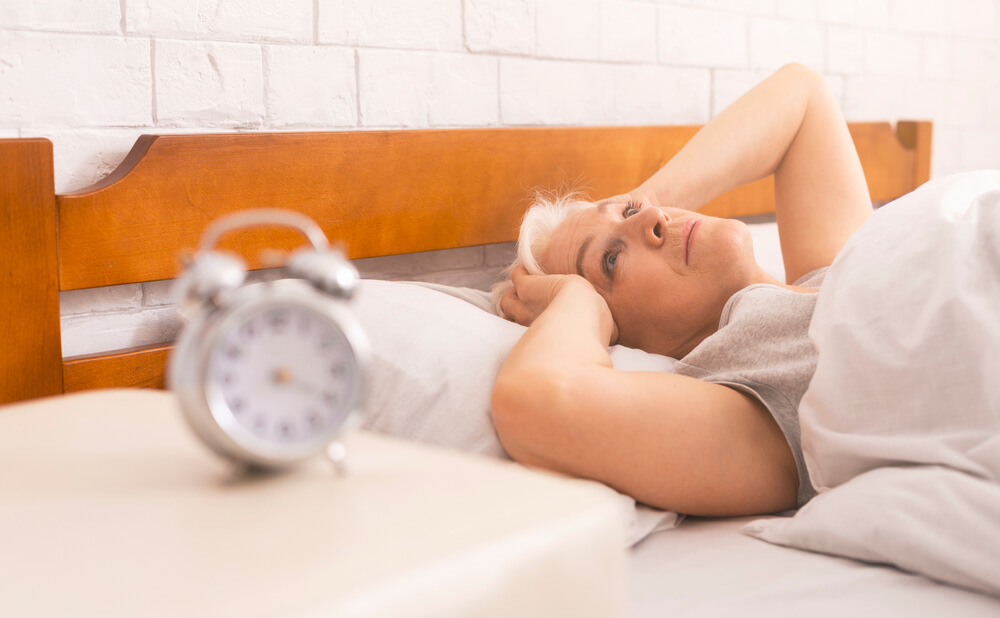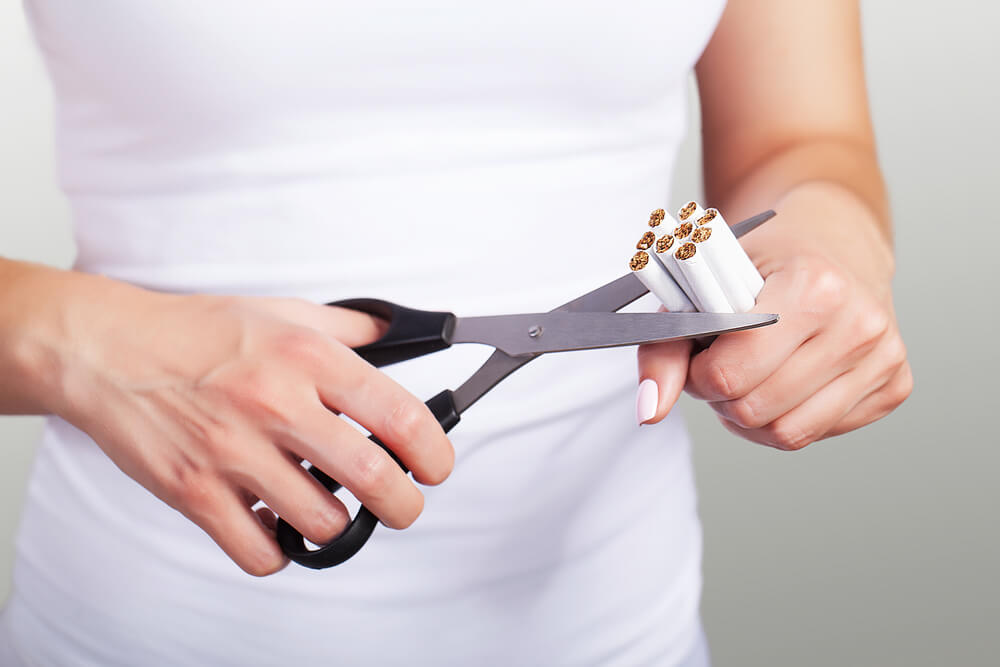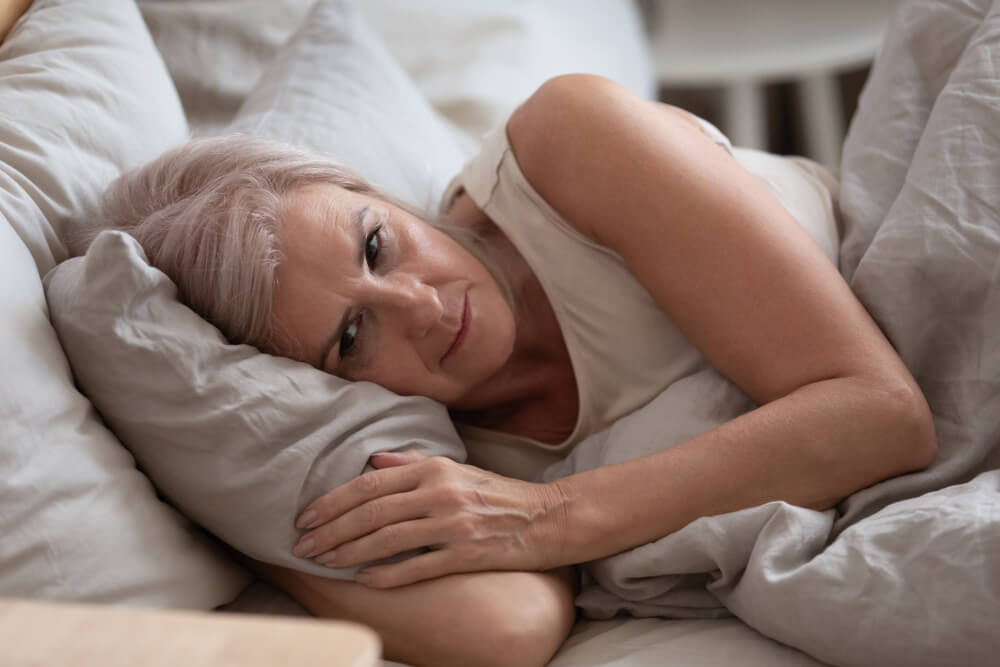Menopause fatigue is just one of the symptoms that women may experience during this time of their life. Due to hormone changes, women may encounter a variety of symptoms, from hot flashes, weight gain, and commonly disturbed sleep. But how does menopause affect your sleep schedule? How are menopause and insomnia linked? Find out everything you need to know about menopause and sleep in this article.
We’ll go into the details, but before doing that, make sure to book a menopause consultation with a trusted healthcare professional. That’s where you’ll get the best advice and guidance possible.
Without further ado, here are the facts on how menopause and sleeplessness go hand in hand together.
Menopause and the Symptoms
Menopause is natural, and all women in their 40s and 50s experience it. In the months or even years before menopause (this period is also referred to as “perimenopause), you or a dear one may share some or all of these signs:
- Hot flashes
- Mood changes
- Chills
- Irregular menstruation
- Vaginal dryness
- Loss of breast fullness
- Slowed metabolism and weight gain
- Sleep disturbances
- Menopause fatigue
The degree of severity of these symptoms will vary from one woman to the next. Moreover, some women may not even experience symptoms such as menopause fatigue and mood changes.
You’ll always want to consult with a trained and skilled professional, like Dr. Francisco Jimenez. Only this way will you receive the expert advice needed to alleviate symptoms and get you back to living life normally.
Menopause and Sleeplessness: How are They Linked?

Menopause and sleep problems are common, and here’s why one leads to the other. According to research, insomnia is typically more prevalent in patients with lower estradiol levels. Also, sleeplessness is more common in patients who suffer from frequent hot flashes during the night or those who have decreased melatonin levels.
As we’ve mentioned before, women in menopause go through hormonal changes. Not only are women with declining hormone levels due to menopause at risk of insomnia, but the same is true for post ovary removal surgery patients.
Melatonin and Menopause: What’s the Deal?
But what does melatonin have to do with menopause and sleep problems? Well, melatonin is a critical hormone needed for a proper sleep-wake cycle. In a nutshell, melatonin is needed to properly function the circadian rhythms (the 24-hour internal clock) and with a good night’s rest.
Unfortunately, melatonin levels decrease as we age, thus leading to sleep disturbances. On the flip side, no research suggests a clear link between the decline in melatonin and menopause. With this in mind, some evidence suggests a connection and that postmenopause patients have less melatonin than premenopause ones.
Menopause and Sleeplessness: Are Hot Flashes to Blame?
Night sweats or hot flashes are other common symptoms of menopause, with up to 85% of women experiencing them. Naturally, these symptoms cause sleep disruption, resulting in poor sleep and frequent waking. In brief, hot flashes are a sudden uncomfortable sense of heat around the neck and the face. Women in menopause with hot flashes and menopause fatigue can also experience rapid heartbeat and sweating.
Other Factors for Menopause Sleep Problems
On top of all this, many women in menopause experience mental health problems in various degrees. Some women experience higher stress levels, while others are frequently anxious or even depressed. Unfortunately, when you experience insomnia, the chances of depression typically grow. It’s well known that sleep affects mood, and since menopausal women may experience sleep disorders, they also have a greater risk of mental health disorders.
Menopause is a significant change in a woman’s life. Unfortunately, many women believe that it’s a sign they’re “getting older,” which further catapults them into the claws of depression. Depressed individuals may want to sleep the entire day, but they may also have issues falling asleep and staying asleep.
Menopause Sleep Problems and Sleep Apnea
Sleep apnea refers to a common sleep disorder in which the person may repeatedly stop and start breathing. For example, people who snore loudly and feel exhausted even after 7-8 hours of sleep may have sleep apnea.
Although sleep apnea is more frequently linked with men, women in menopause are also at high risk. Sleep apnea in menopausal women happens due to the loss of estrogen and progesterone, two important reproductive hormones.
How to Get Over Menopause and Insomnia?
Fortunately, there are several ways you can treat insomnia induced by the symptoms of menopause. By following some or all of the tips below, you’ll be able to get a better night’s rest.
Go Exercise Every Day
Exercise is good for our well-being, both physical and mental health. By getting regular exercise, menopausal women will fall asleep faster, and they’ll get a better night’s sleep. In addition, by working out almost every day, not only will you deal with menopause sleep problems, but you’ll also keep your weight in check and your heart healthy.
Aerobic exercises such as running can help you fall asleep faster at night, and a high-intensity workout in the afternoon can promote peaceful sleep.
Consider Medication and Therapy
Researchers revealed that some SSRIs or selective serotonin reuptake inhibitors might alleviate sleep disorders in menopausal women. When it comes to menopause sleep problems, women can try hormone replacement therapies. However, these may not be as effective as other methods, and they may have added risks. If you want to try alternative treatments, we recommend acupuncture. Based on a Danish study, five weeks of acupuncture can reduce symptoms of menopause such as night sweats, hot flashes, emotional issues, and sleep problems.
Change Your Lifestyle for the Better
If hot flashes are disrupting your sleep and keeping you up at night, here are some lifestyle changes you can implement today:
Keep yourself cool.
Even slight changes in your body’s temperature can trigger dreadful hot flashes. Therefore, we recommend dressing in layers. This way, you can remove a piece of clothing if you feel too warm. Also, make sure to use a fan, an air conditioner, or open a window to let cool air in. You can also try sipping on a cool drink if you feel too hot.
Eat less spicy foods and reduce caffeine.
Spicy and hot foods can make hot flashes worse. Also, reduce your consumption of caffeinated drinks such as coffee, energy drinks, and even alcohol.
Quit smoking for good.

Smoking and hot flashes can also go hand in hand. If you stop smoking, you’ll not only reduce the chances of experiencing hot flashes, but you’ll also ward off cancer, stroke, and heart disease.
Conclusion
Menopause can greatly affect every aspect of a woman’s life, including sleep quality. Since women in menopause may experience symptoms such as hot flashes, night sweats, and mood changes, they may also face insomnia. Luckily, there are several ways to make these symptoms more manageable, thus helping you get a better night’s rest.
Book Your Appointment Today
If you or a loved one are going through menopause, remember, you don’t have to do it alone. Book an appointment today and receive expert guidance.


